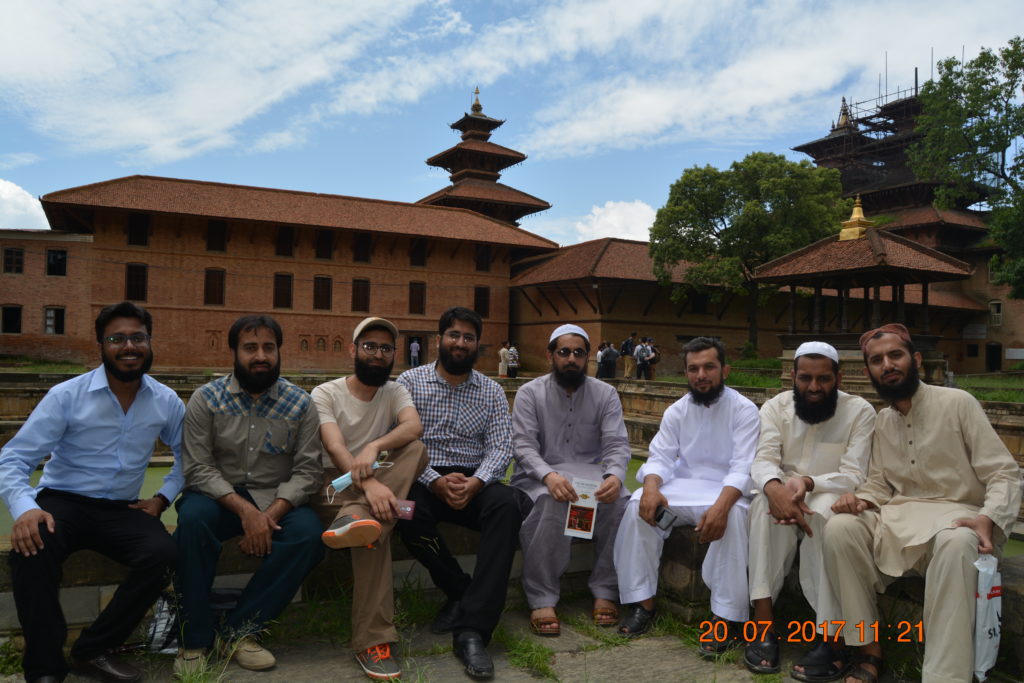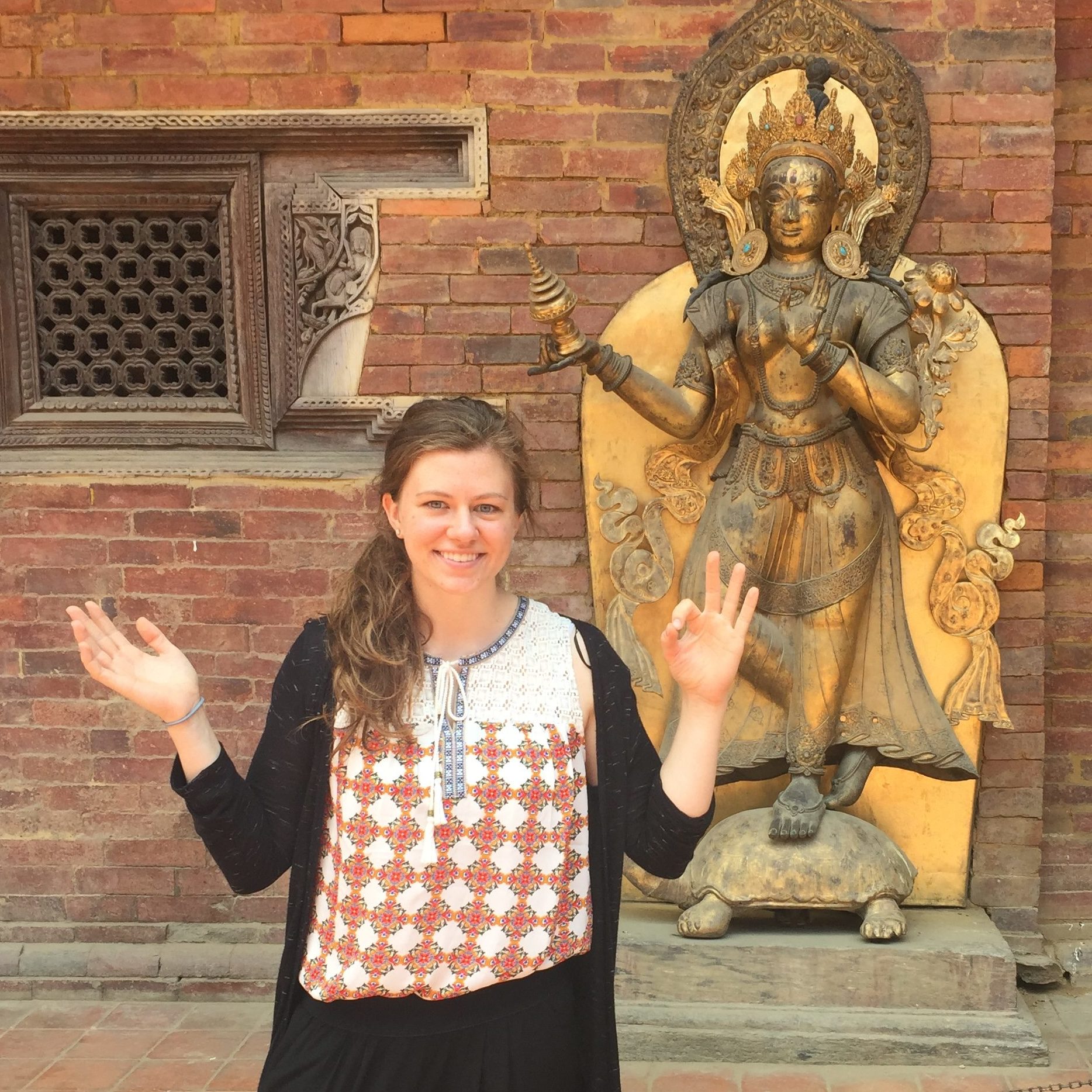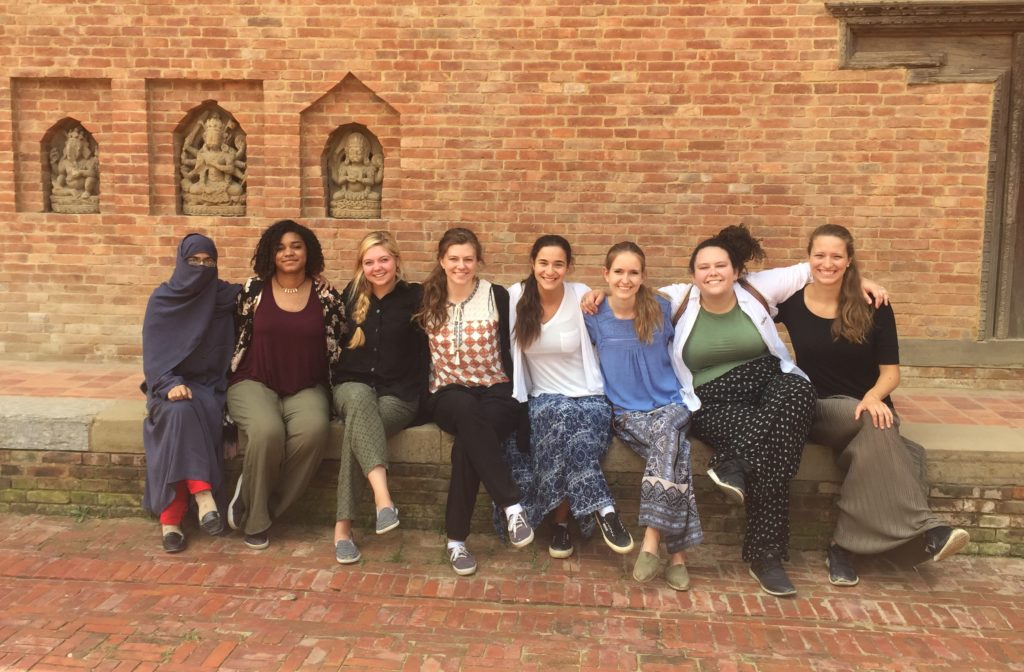
“How was Nepal? What exactly were you doing there?” Since I’ve been back in the United States, I’ve struggled to answer these questions. There’s no simple and cohesive answer to describe all of my experiences at the Madrasa Discourses Kathmandu Summer Intensive. What is even harder is trying to explain the context the madrasa graduates are coming from and the need for the Discourses project without reinforcing many people’s perspective that Islam lends itself to extremism and fundamentalism. As soon as I try to describe madrasas (Islamic seminaries), with their intense focus on the Qur’an and often outdated syllabi, I can see some people solidifying their ideas that madrasas create terrorists or all Muslim communities are ultra-conservative at best. I have to rush to explain the warm welcome I received as soon as I arrived, how I was immediately treated as a sister, how every one of the madrasa students wanted to hear the Notre Dame girls’ opinions in discussions, and explain that madrasas are not breeding grounds for terrorism. My incredible time at the Kathmandu Summer Intensive introduced me to many amazing, kind scholars as well as to the strengths and weaknesses of their education. I was able to understand the need to update the framework in which Islam is interpreted and studied around the world in a fuller context because of the people I met and the stories I heard. This juxtaposition of an education system in need of reform and incredibly intelligent scholars is hard to explain, especially when you mix in a currently (and unfortunately) politically charged subject like Islam.
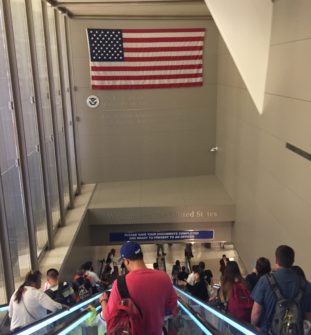
I’d like to share all of my experiences, good and bad, but worry about how my stories will be interpreted hold me back at times, fearing I will inadvertently solidify simplistic, anti-Muslim views. The vast majority of my friends and family are very tolerant, open-minded people who choose to see the good in the world. It’s easy to tell them what happened in Nepal without trying to use a filter or without needing to overemphasize the good things. However, there are some people that I’m close to that are not as open. For example, I have a family member who, while she is a good person, has been previously misinformed and has unfortunately stuck to that misinformation. So, with her, it has been great sharing the many good things that happened. However, as soon as I start trying to explain the importance of the project, she cuts in and asks if madrasas create a lot of terrorists or if Muslim societies are typically fundamentalist. Even after I assure her that the answer to both of those questions is a definite no, she seems suspicious. As soon as I start talking about my frustrations with a lot of the gender discussions that took place in Kathmandu, I can practically see her more negative view of Muslim cultures hardening.
A few nights after my return, the topic of my trip to Nepal came up, and this family member mentioned that one of the participants from the Madrasa Discourses sent her a friend request on Facebook. Her first thought was, “ISIS.” When she told me that, I had to force myself not to walk away from her mid-conversation. I was shocked and repulsed that someone in my own family could say something like that. I hate that there are people out there whose minds immediately jump to terrorism when they see bearded and/or traditionally dressed Muslims, but it kills me that someone so close to me could think this, even after I had explained how wonderful all of the Madrasa Discourses participants were. It’s so hard for me to change my family member’s mindset. I try to balance out the negatives by pointing out the need for change but also trying to explain the good intentions behind them. For this, I always return to my conversations on gender with Hafiz Abdul Rehman (Hafiz), with whom I formed a strong friendship.
Hafiz is a fairly quiet Pakistani school teacher. He’s a devout Muslim who joined these Discourses to learn about different approaches to the Islamic faith. He’s one person I know will bring the things he learns through the Madrasa Discourses back with him to share with others. He is a kind person to the core, is eternally well-meaning, and has so much love to give to the world. I had some amazing conversations with Hafiz the first couple of days, and he really helped me understand the madrasa graduates’ perspectives on the day the lectures focused on gender equality and social inclusion. While I did not agree with his (and most of the other madrasa students’) stance on gender “equality” or how women and men should be seen, he never got annoyed at my many questions. He heard me out every time, and he really tried to understand what I was saying and where I was coming from. In return, he helped me to see that the gender roles in their society help to create strong family units and are upheld by many out of a sense of love and respect. He liked to tell me, “people think we don’t love women in our society. But I think it is that we love women more than men.” He would cite passages in the Qur’an where Mohammed talks about how a mother’s love is unmeasurable or how the mother is most worthy of “good companionship,” even three times over the father. He shared his belief that the separation of men and women and women’s modest dress was to protect women. He told me, and I really feel he believes, that his society values women so much that it wants to protect and provide for women. He explained that the reasons women need to stay home are to raise the children and run the household; he used to laugh at that part and tell me, “really, the women are the bosses of the men, Alaina.” He said that men had to go work in order to give money to their parents and then to their wives. Through all of my conversations with Hafiz, it was very hard for me to voice my disagreements, not because he didn’t let me (he welcomed the opportunity to hear another opinion) but because I knew that everything he did and believed came from a place of love and respect.
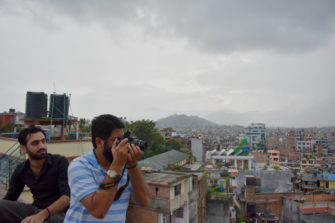
These are the things that I want to share with people. I want to show them that even the negative aspects of my experience (like my frustrations with many madrasa graduates’ beliefs about gender dynamics) had positive parts. Most of the time, I found that participants perpetuated these lifestyles out of a place of love. Other times, it seemed that lifestyles continued because of a lack of understanding of other viable options or because they didn’t know how to challenge the status quo. Back in the US, my struggle is that some people stop listening after they hear that traditional or gender-segregated lifestyles are being perpetuated in the madrasa graduates’ communities. (By the way, these lifestyles are culturally grounded and vary vastly among Muslim societies globally.) I can’t figure out how to reach people with an anti-Muslim bias in an effective manner. For some, I choose only to share the positive aspects of my experience. For others, I allude to some of my frustrations surrounding certain conversations in Kathmandu without going into detail. But really, I want to tell everyone the whole story. And, to me, the positives of my Nepal story vastly outweigh the negatives. Yes, there is a huge need for change and for updating, as I learned, but there is also so much good and so much love that I encountered. There is so much in my Nepal experience that gives me hope for the future and for a positive change and updating in Islamic scholarship/madrasa education, however quickly or slowly it may happen.
I loved my Nepal experience. I’m not going to say that I enjoyed the entire thing, the food was sometimes unrecognizable and I put my foot in my mouth far too many times to claim constant enjoyment, but overall, the feelings I take away from my two weeks in Nepal are love and enlightenment. I learned so much, and I met so many incredible, impressive people. I want to share this experience, this entire experience, with others. The fact that I will come across more intolerant or misinformed individuals is a given. Thus far, I have not found an easy way to break open that dialogue with those individuals, but I hope that the more I share my experience, the easier it will be for me to navigate those tricky conversations with a cool head. Sharing my experience has already helped my family member see a little better the world the madrasa graduates I met live in, and I’d like to think that little by little, my stories will help others become more understanding, too.
